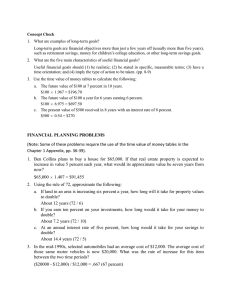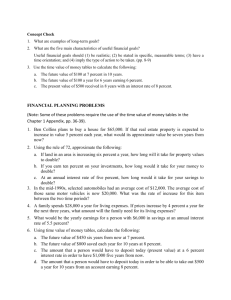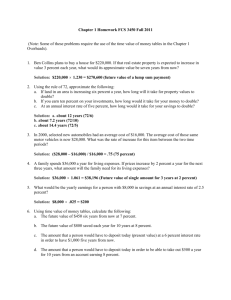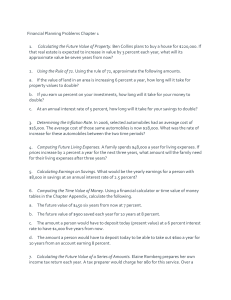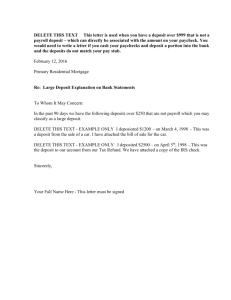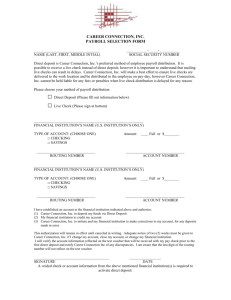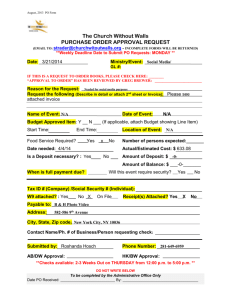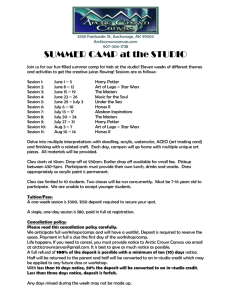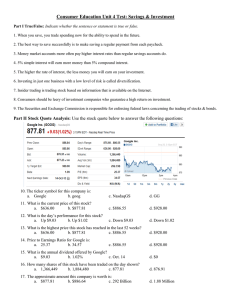HOMEWORK #2
advertisement
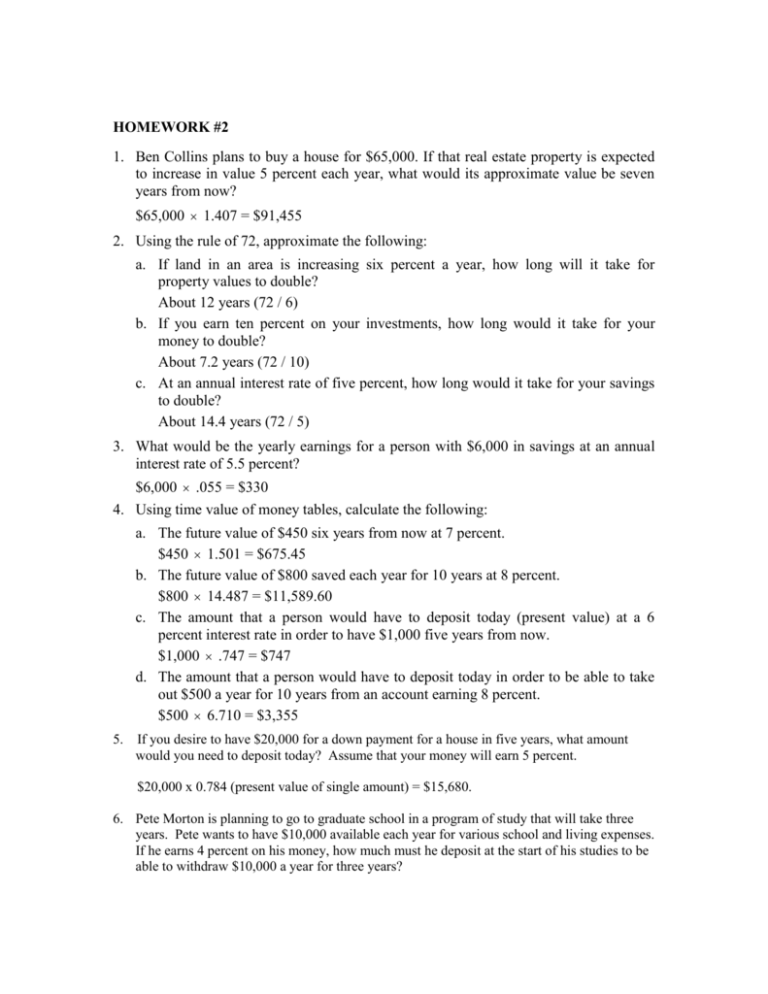
HOMEWORK #2 1. Ben Collins plans to buy a house for $65,000. If that real estate property is expected to increase in value 5 percent each year, what would its approximate value be seven years from now? $65,000 1.407 = $91,455 2. Using the rule of 72, approximate the following: a. If land in an area is increasing six percent a year, how long will it take for property values to double? About 12 years (72 / 6) b. If you earn ten percent on your investments, how long would it take for your money to double? About 7.2 years (72 / 10) c. At an annual interest rate of five percent, how long would it take for your savings to double? About 14.4 years (72 / 5) 3. What would be the yearly earnings for a person with $6,000 in savings at an annual interest rate of 5.5 percent? $6,000 .055 = $330 4. Using time value of money tables, calculate the following: a. The future value of $450 six years from now at 7 percent. $450 1.501 = $675.45 b. The future value of $800 saved each year for 10 years at 8 percent. $800 14.487 = $11,589.60 c. The amount that a person would have to deposit today (present value) at a 6 percent interest rate in order to have $1,000 five years from now. $1,000 .747 = $747 d. The amount that a person would have to deposit today in order to be able to take out $500 a year for 10 years from an account earning 8 percent. $500 6.710 = $3,355 5. If you desire to have $20,000 for a down payment for a house in five years, what amount would you need to deposit today? Assume that your money will earn 5 percent. $20,000 x 0.784 (present value of single amount) = $15,680. 6. Pete Morton is planning to go to graduate school in a program of study that will take three years. Pete wants to have $10,000 available each year for various school and living expenses. If he earns 4 percent on his money, how much must he deposit at the start of his studies to be able to withdraw $10,000 a year for three years? $10,000 x 2.775 (present value of a series) = $27,750. 7. Carla Lopez deposits $3,000 a year into her retirement account. If these funds have an average earning of 8 percent over the 40 years until her retirement, what will be the value of her retirement account? $3,000 x 259.060 (future value of a series) = $777,180 8. If a person spends $10 a week on coffee (assume $500 a year), what would be the future value of that amount over 10 years if the funds were deposited in an account earning 4 percent? $500 x 12.006 (future value of a series) = $6,003. 9. A financial company that advertises on television will pay you $60,000 now in exchange for annual payments of $10,000 that you are expected to receive for a legal settlement over the next 10 years. If you estimate the time value of money at 10 percent, would you accept this offer? First, calculate the future value of the annual payment $10,000 X 15.937 = $159,370 Next, calculate the present value of that future flow $159,370 X 0.386 = $61,516.82 Finally, the $60,000 being offered now is less than the present value of the future flow. 10. A budget should have five attributes. It should be (fill in the blanks): Specific Measurable Attainable Realistic Timely
